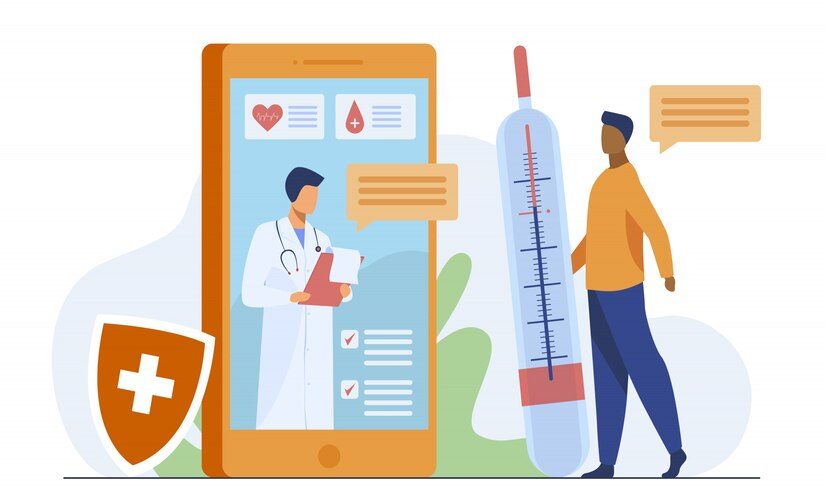Amidst the ever-evolving healthcare panorama, Mobile Electronic Health Record (EHR) applications herald a monumental shift, ushering in a new era defined by their emergence. These innovative platforms have fundamentally restructured the accessibility, exchange, and management of medical data, introducing adaptable solutions tailored to the dynamic needs of healthcare professionals and patients. They stand as pioneers, reshaping healthcare paradigms and setting new standards for patient care.
Evolving Trends and Future Projections
The trajectory of Mobile EHR applications promises radical advancements and pioneering trends that spearhead a transformative revolution in healthcare:
- Interoperability and Integration: Ensuring seamless compatibility among various healthcare systems and integrating avant-garde technologies like AI and IoT devices, revolutionizing the efficiency of data exchange;
- Telehealth Advancements: These applications serve as catalysts for expanding remote consultations, diagnostics, and monitoring, further amplifying the accessibility and effectiveness of telehealth services;
- Fortified Security Measures: A strong emphasis on stringent security protocols and advancements in encryption techniques ensures impervious protection of sensitive patient data;
- AI Integration: Infusion of AI-driven features such as predictive analytics and decision support systems enhances precision in diagnoses and the customization of treatment plans;
- Patient-Centric Empowerment: Constant innovations focus on enriching patient engagement, empowering individuals with active participation tools through user-friendly mobile platforms to manage their healthcare journey effectively.
Notable Mobile EHR Applications
iOS Apps:
Epic Systems
Features: Comprehensive access to patient charts, clinical imaging, e-prescription services, and secure scheduling tools.
Allscripts Professional EHR
Features: Efficient patient charting, prescription management, and intuitive appointment scheduling functionalities.
Athenahealth
Features: Specializes in healthcare operations, offering patient charting, e-prescriptions, and streamlined appointment management.
NextGen Healthcare
Features: Provides a user-friendly interface, focusing on efficient patient data management and scheduling tools for healthcare practitioners.
Android Apps:
DrChrono
Features: Customizable medical forms, robust clinical workflow enhancement tools, and comprehensive patient charting capabilities.
Practice Fusion
Features: Specializes in seamless patient record management, e-prescriptions, and secure provider communication.
Advanced MD
Features: Robust patient charting, medication history access, and secure messaging functionalities.
eClinicalWorks
Features: Designed for efficient patient data management, record-keeping, appointment scheduling, and patient communication on Android devices.
Distinctive Advantages
- Mobile EHR applications offer a distinctive array of advantages;
- Instant Accessibility: Immediate access to critical patient data ensures timely decision-making during crucial situations, thereby elevating the standards of patient care;
- Streamlined Documentation: Real-time updates curtail errors, ensuring greater precision in medical records, ultimately enhancing overall healthcare quality;
- Enhanced Connectivity: Seamless interaction between patients and healthcare providers fosters better comprehension and engagement with health-related information, leading to more informed decision-making;
- Operational Efficiency: These applications augment productivity, enabling healthcare providers to focus on quality care delivery by reducing administrative burdens and streamlining workflows.
Enhancing healthcare workflow through nurse scheduling optimization
Advancing Healthcare Dynamics
The influence of Mobile EHR applications transcends mere accessibility to medical records; they serve as catalysts for a range of pivotal changes in healthcare:
- Enhanced Care Coordination;
- Precision Medicine Integration;
- Remote Patient Monitoring;
- Data-Driven Decision Making;
- Healthcare Accessibility.
Evolving Mobile EHR Landscape
The future trajectory of Mobile EHR applications anticipates several transformative developments:
- Enhanced AI Integration;
- Blockchain Adoption;
- IoMT Integration;
- Augmented Reality (AR) in Healthcare;
- Standardization and Interoperability.
Detailed guide: Google Nexus 9 features
Strategic Challenges and Solutions
Despite their remarkable benefits, integrating Mobile EHR applications presents challenges:
- Data Security and Privacy;
- User Adoption and Training;
- Regulatory Compliance;
- Interoperability Challenges.
Conclusion
Mobile Electronic Health Record (EHR) applications spearhead a healthcare revolution, redefining medical data accessibility and significantly enhancing care quality. These pioneering platforms not only provide unparalleled access to real-time medical records but also streamline documentation processes, enabling better communication between patients and healthcare professionals.
Furthermore, these applications present a comprehensive approach to healthcare delivery, empowering both patients and healthcare providers. The future trajectory of these applications promises remarkable advancements that will further reshape and elevate the healthcare industry, addressing the evolving needs of both providers and patients.
